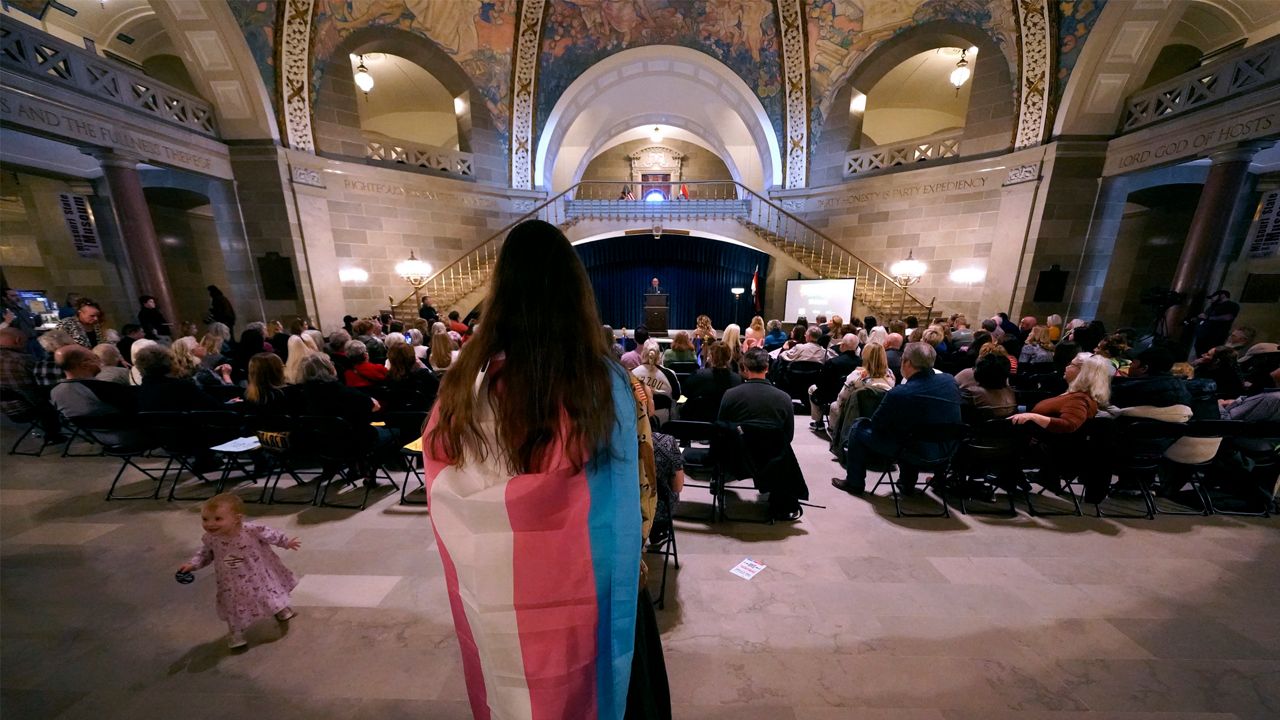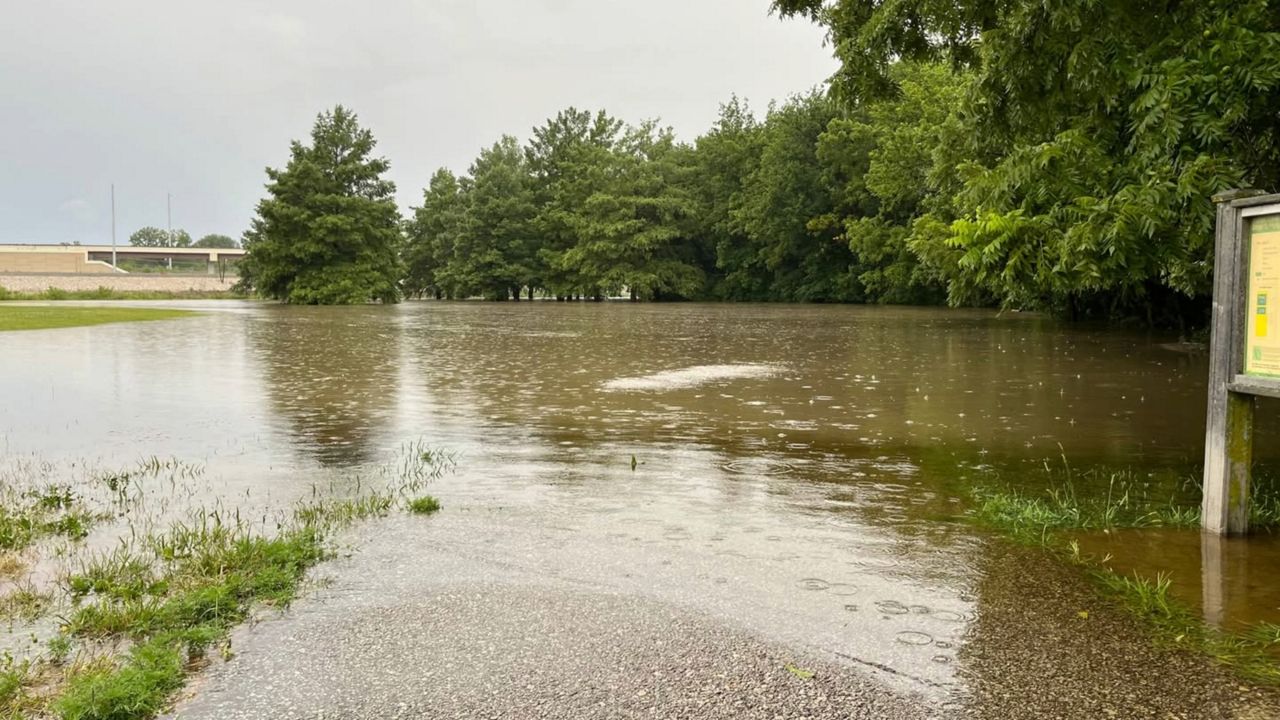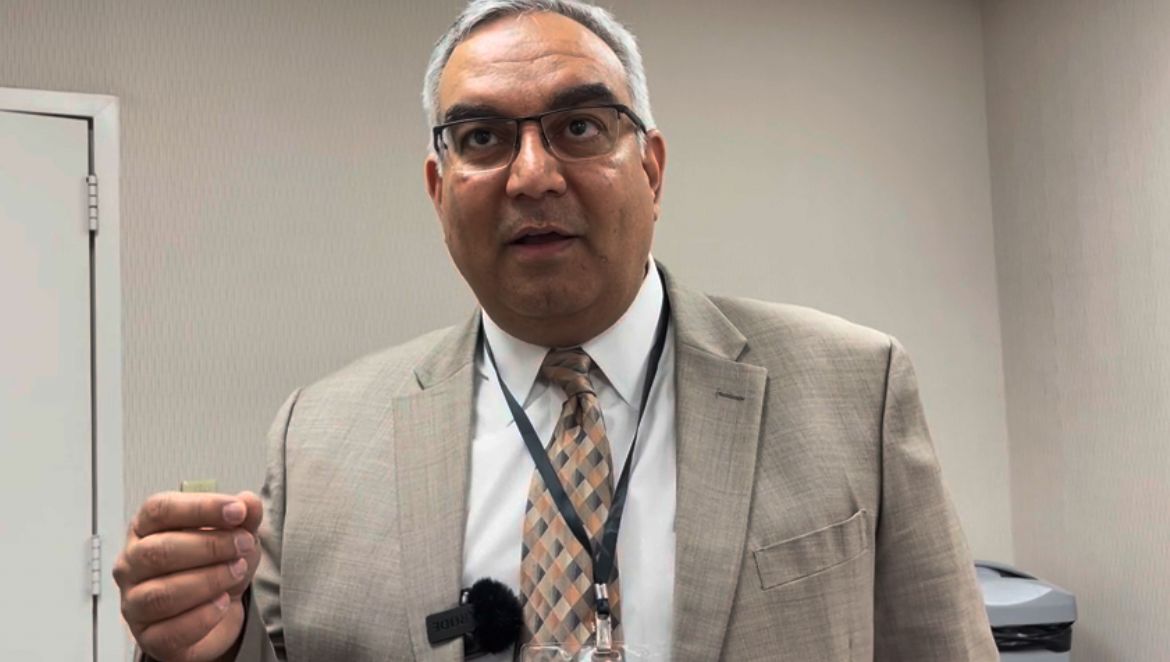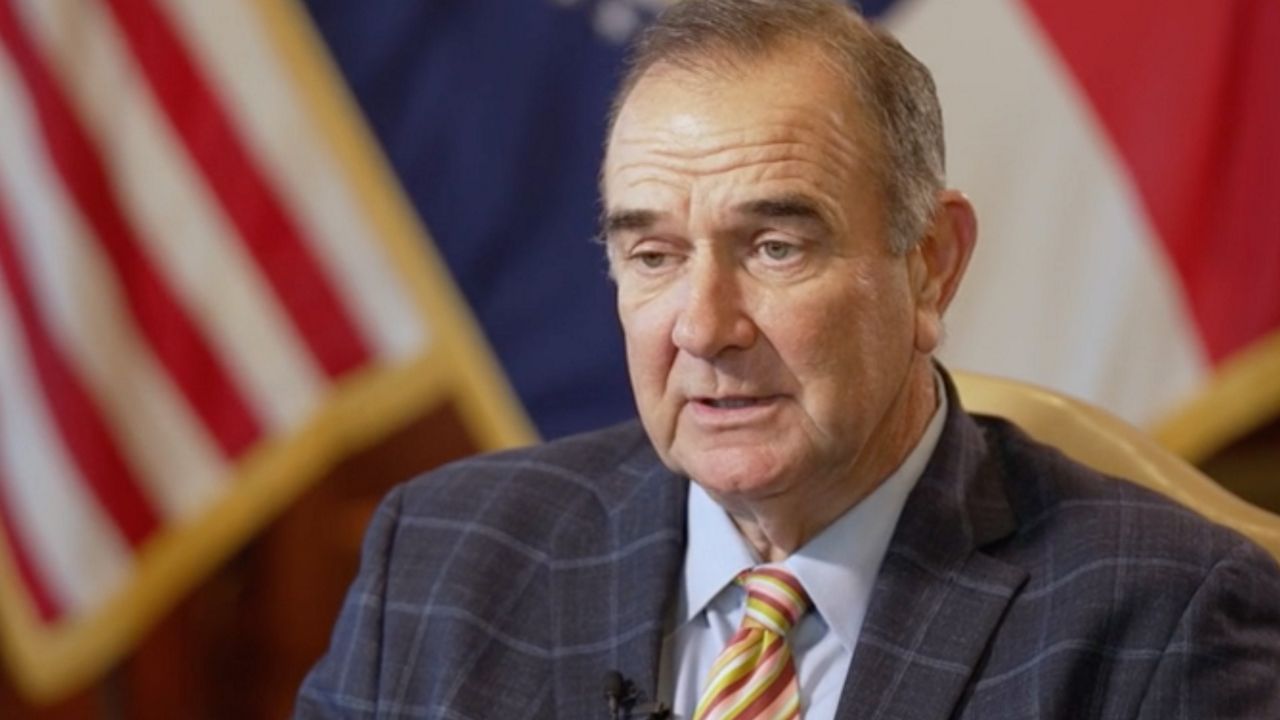ST. LOUIS— With less than three weeks until a new state law takes effect prohibiting Missouri school districts and colleges from allowing transgender girls and women to compete with biological female athletes in school sports, there are questions surrounding when the state will have rules in place to enforce the measure.
Senate Bill 39, signed by Gov. Mike Parson, was one of a pair of bills which passed this past session that focused on transgender issues. The other, Senate Bill 49, bans new transgender medical treatment for minors, including puberty blockers and surgical procedures.
Both bills carry a four-year term and expire Aug. 28, 2027. SB 49 is already the subject of a legal challenge.
Senate Bill 39 does allow a female student to compete in an event designed for male students “if no corresponding competition for female students is offered or available,” a scenario that might describe a female athlete playing football, for example.
According to the Missouri State High School Activities Association, ten children statewide would have had eligibility to compete as transgender athletes this academic year under the organization’s existing rules, which required a year of hormone therapy before being allowed in competition. A MSHSAA spokesperson said the impacted districts have been notified of the change in state law.
Schools that violate the law risk “state aid or other revenues.” The law also gives the parent or guardian of any student under the age of 18, or any student over 18, a legal cause of action in court if the student is “deprived of an athletic opportunity” because of a violation.
The bill charges the Department of Elementary and Secondary Education and the Department of Higher Education and Workforce Development with coming up with rules and regulations to administer the law.
Those departments have spent the summer reviewing the legislation but have yet to release formal guidance.
Missouri’s state Board of Education meets next week and isn’t scheduled to discuss the issue. The Coordinating Board of Higher Education doesn't meet until next month and also hasn't taken action.
Shortly after he signed the bill into law, Gov. Parson applauded it at Lincoln County GOP gathering in June.
“If you want to compete, compete, compete in the area, you’ve got a birth certificate. Whatever that might be. I’m gonna tell you something right now. There’s not gonna be a 17, 18-year-old boy taking a shower with 13, 14-year-old girls. It’s not gonna happen in this state.
I guarantee you I’m not gonna let (Attorney General) Andrew Bailey sit on the sidelines on that issue. He’s gonna be fighting for me on that very issue….I’m serious,” Parson told the audience, which included Bailey.
Without naming the district, Parson told that June audience about a St. Louis-area school district that he said passed a resolution indicating “we’re not gonna do what the Governor says,” Parson said.
“They’re gonna do what I say. I’m telling you right now. Or is there going to be a price to pay. Because I’m just not gonna let that go on, not in this state, not as long as I’m Governor,“ Parson said.
The Maplewood-Richmond Heights School District in March passed a resolution that said students could participate in athletic and other extracurricular activities, according to their gender identity, without requiring legal or medical documentation.”
The district told Spectrum News in late June that the resolution was not a policy shift, describing it as “a formal framework of ways this district intends to show support for our LGBTQIA+ students and community members, letting them know that they matter.”
At the time, the district said it was waiting for more information about rules and implementation before deciding if it would take the next step and change district policy. Wednesday, a district spokesperson confirmed it had "no student-athletes who have expressed an intent to play in a sport traditionally designated for a gender opposite of their birth certificate."
The spokesperson said the School Board was still talking to lawyers and had not reached a decision on "next steps" for the district's resolution.
A spokesperson for the Attorney General’s office did not respond to a question this week asking about a district’s potential liability if it allowed a transgender athlete to compete before the rules and regulations were officially in place.
Thursday afternoon, a spokesman for Parson said the Governor's office expects the Attorney General "will enforce the law as it views necessary. The statute will speak for itself in the absence of rules."









